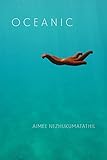Last Thursday, the poet Mary Oliver died; by mid-afternoon, my social media feeds were flooded with friends mourning her passing and expressing gratitude for her work. These friends—many of them poets, but also a minister, a pianist, an 18th-century scholar—wrote eloquently of Oliver’s impact on their lives: how she’d taught them to pay attention, how she’d comforted them in hard times.
Reading the testimonials, I was moved, and sad for the loss of someone who seemed like a fascinating and kind person, but also—what was this unsettling emotion tucked beneath the other ones?—a little bit envious of these friends who’d had their lives enriched by Mary Oliver’s work. I’d never read Oliver, other than a few poems here and there. How had I missed her?
This question buzzed in the back of my mind as I scrolled through post after post, and then I began to realize: I’d never delved into Mary Oliver because I’d never let myself. Although I’d never really reckoned with why that was, I was familiar with the widespread critical dismissals of her work, like David Orr’s dig in The New York Times, in which he disparaged O Magazine’s profile of Oliver by writing “about [her] poetry one can only say that no animals appear to have been harmed in the making of it.” I knew that in my two decades of studying and writing poetry, no one—not a teacher, not a friend—had ever pressed a Mary Oliver book into my hands, saying, “You’ve got to read this.” I knew the air of condescension, or at least apology, that so often accompanied a mention of Oliver’s poems; at conferences, in grad school bars, if the conversation turned a certain way, someone might say, “Well, Mary Oliver has a poem—I know, I know—but—” and everyone would smile understandingly.
But if I’m being honest, I also had my own set of preconceptions. I knew that Mary Oliver’s poems were popular and beloved. I knew she wrote about celebrating nature. I knew she was considered “accessible.” I knew that her books were always well-stocked on the tiny, sad poetry shelf of every bookstore. I’m ashamed to say that these facts combined to make me wary, even though I also write about the natural world and think of my work as relatively “accessible” (though my books are not, alas, well-stocked in every bookstore), even though many of the poets whose work I most admire fall into one or more of these categories, and even though surely “beloved” is one of the best monikers any of us can hope to earn. I’d read some of Oliver’s individual poems, of course, and a decade ago when I was going through a period of intense anxiety and depression I came across her oft-quoted “Wild Geese” and felt an almost tangible sense of relief at its clear-eyed and compassionate opening lines, which tell the reader:
You do not have to be good.
You do not have walk on your knees
for a hundred miles through the desert, repenting.
You only have to let the soft animal of your body
love what it loves.
Even now, typing those words, I’m comforted. Still, I’d never purchased one of her books, never checked one out from the library, never even gone poking around online for her greatest hits. As I read tribute after tribute, I prodded my vague guilt, trying to find its source—yes, I’d unfairly cut myself off from a poet I should have read, but surely this wasn’t the first time I’d missed out on important work. So what was it? Slowly, the deeper underlying worry began to pulse through: was it possible that, despite my best efforts to resist proscriptive poetry doctrines, somewhere along the line I’d internalized the unspoken tenet that accessible poems of praise and wonder are less worthy of real attention?
As a beginning poet, I was wary of anything that smacked even slightly of sentimentality. I learned it was safer to eschew the autobiographical, easier to polish up my dark imaginings until they gleamed. In those early years, what I wanted most was to protect myself from accusations of softness. And though my work became increasingly confident as I kept writing, it wasn’t until my most recent book, a poetry collection centering around a tornado that devastates a small town, that I began to understand it takes some bravery to risk being perceived as soft. That book includes a number of autobiographical poems about the raw intensity of motherhood, and several more written in praise of both the natural and domestic worlds; these were topics that I’d long understood to be dangerous ground. How easily a foot might slip from motherhood to mawkishness, from humming dusk to Hallmark card!
But those were the poems I wanted most to write, and I like to think they stayed on the right side of that tipping point between sentiment and sentimentality because, like any poem that hopes to represent an experience accurately, they paid attention. In writing them, I tried to be as honest and precise as I could. Another oft-quoted Mary Oliver sentence is this one: “Attention is the beginning of devotion.” I love this line. It seems to me as good a directive for writing poems as for living life.
So I’d been feeling good about consciously shaking off reductive precepts about subject matter and approach. And I’d been happy, too, with my work to help my students become skeptical of voices that try to dictate what poetry shouldn’t do. For years I’ve taught that anything can be a ripe subject for poetry, and that poems aren’t limited to one tone or mood. Poems can be funny! I remind my students. Really good sincere love poems exist!

 But the morning of the day that Mary Oliver died, one of my poetry students approached me after class and asked if I could recommend any poems that were…she hesitated…less bleak than the ones we’d been reading. She asked me this tentatively, as if she knew it wasn’t something a real writer should want or request, and I was flooded with teacher-guilt: had I, through the poems I emphasized and the ones I left out, inadvertently been teaching my students that poems of comfort and celebration were somehow less-than? I thought about the poems we’d explored so far this semester—all poems I love, all poems of great craft and skill…and all poems that dive into the world’s darkness and swim around. It isn’t that I don’t love and teach hopeful poems, too—but, I realized, by not teaching any in the crucial first few weeks of the semester, I had implied parameters in which I don’t believe. The student took out her phone to jot down notes, and quickly I recommended Aimee Nezhukumatathil’s Oceanic. I recommended Ross Gay’s Catalog of Unabashed Gratitude. I pointed her to Twitter, where the poet Chen Chen had recently started an excellent thread of “happy poem” recommendations. Then I went home to the news that a poet who had made her career out of observing and celebrating this world had left it.
But the morning of the day that Mary Oliver died, one of my poetry students approached me after class and asked if I could recommend any poems that were…she hesitated…less bleak than the ones we’d been reading. She asked me this tentatively, as if she knew it wasn’t something a real writer should want or request, and I was flooded with teacher-guilt: had I, through the poems I emphasized and the ones I left out, inadvertently been teaching my students that poems of comfort and celebration were somehow less-than? I thought about the poems we’d explored so far this semester—all poems I love, all poems of great craft and skill…and all poems that dive into the world’s darkness and swim around. It isn’t that I don’t love and teach hopeful poems, too—but, I realized, by not teaching any in the crucial first few weeks of the semester, I had implied parameters in which I don’t believe. The student took out her phone to jot down notes, and quickly I recommended Aimee Nezhukumatathil’s Oceanic. I recommended Ross Gay’s Catalog of Unabashed Gratitude. I pointed her to Twitter, where the poet Chen Chen had recently started an excellent thread of “happy poem” recommendations. Then I went home to the news that a poet who had made her career out of observing and celebrating this world had left it.
I didn’t pay attention to Oliver’s work when she was alive, and that was my own failing, stemming from my own fear. Thinking about this over the past few days, I’ve resolved to incorporate more poems of wonder and solace into my teaching, and to work more consciously to show students that these subjects aren’t off-limits for writers; indeed, aren’t they so much of what we look for in the literature we love most? I’ll be sure, too, to emphasize that just because a poem embraces joy doesn’t mean it can’t also acknowledge suffering, and vice versa—an essential duality I’ve seen underscored again and again in the Mary Oliver poems being posted over the weekend. We’ll discuss the particular risks and challenges that might accompany writing poems that dwell in gladness; we’ll discuss, too, the much greater risk of writing as though poetry doesn’t belong in the business of celebration.
A few days ago, I ordered a copy of Mary Oliver’s Devotions: The Selected Poems from my local bookstore. Though they usually have her books in stock, the owner told me, people have been buying them up since learning of her passing. I’m looking forward to getting the book. I plan to read it slowly, after the kids go to bed, a few poems at a time. I plan to pay attention. When I’m done, I’ll lend it to my student.
The post On Mary Oliver and Resisting Poems of Gladness appeared first on The Millions.













